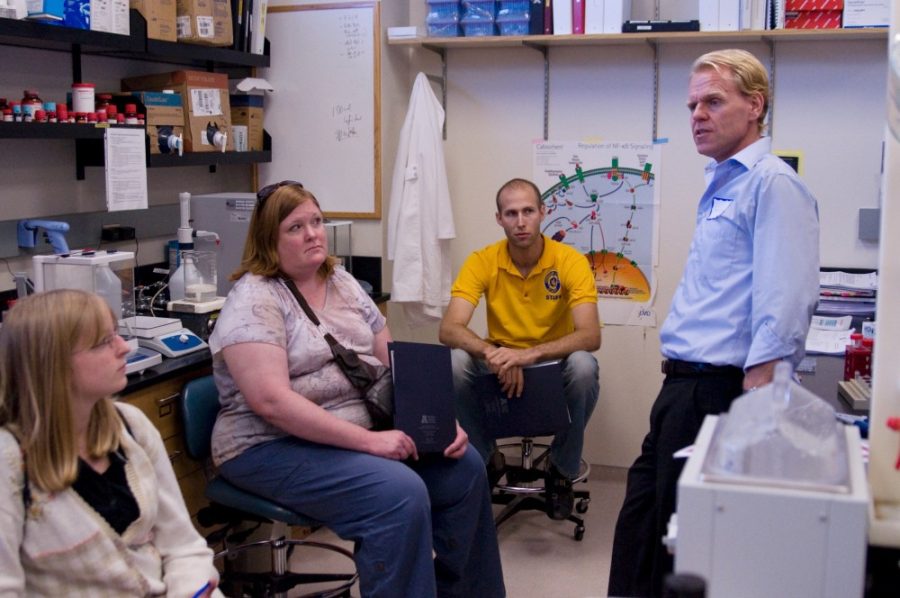Cancer experts addressed the need to develop individualized cancer treatments Saturday at the Arizona Cancer Center’s Day of Discovery. Genetic differences between individuals make it imperative to tailor cancer treatments to each patient, UA research professor Dr. Steven Stratton said at the event.
“”Our goals are things that don’t exist yet,”” Stratton said. “”We hope that eventually 100% of a population will respond to a drug tailored in a way that treats each person’s problem individually. We are really working toward this.””
The Day of Discovery, a free event open to the public, aimed to highlight research being done at the Cancer Center and to provide the general public with an opportunity to learn about the latest advances in cancer prevention, diagnosis and treatment, said Ilya Sloan, coordinator of outreach and education at the Cancer Center.
Amanda Baker, a molecular pharmacologist, spoke about the center’s new efforts to fight cancer.
There are four main ways in which cancer can be combated, she said: surgery, radiation, drug therapy and supportive care, which involves monitoring a patient’s pain and nutrition intake.
Baker said that due to advances in these fields, a cancer prognosis is no longer necessarily a death sentence, adding that treatment is increasingly an outpatient procedure dependant on oral medications.
“”Cancer is becoming a more chronic disease than a terminal one,”” she said.
Stratton said the three main goals of individualized medicine are to identify the genetic differences that affect drug responses, develop genetic tests to predict individual responses and tailor medications to the individual.
Other experts discussed the health benefits of vitamin D intake and new techniques for fighting breast cancer.
According to Rachel Swart, Ph.D., M.D. in the hematology department and breast cancer researcher, despite a 30 percent decrease in breast cancer mortality in recent years due to expanded use of mammography, this procedure, considered the best technique for breast cancer diagnosis, can’t detect cancer until a late stage that leaves little time for treatment.
Swart cited the process of monitoring circulating tumor cells as an important innovation in the early detection of cancer. CTCs are cells that tumors send out into the blood stream, seeking new places to attach and spread the cancer.
“”We hope to eventually discover cancer before we get imaging studies,”” Swart said. “”This can result in early diagnosis and individualized target therapy.””
Biochemistry sophomore Aubri Carman said the event gave her a chance to learn about what goes on behind the scenes at the Cancer Center.
“”I knew the Arizona Cancer Center was here,”” she said, “”but I didn’t know all the labs are working on such things for cancer patients.””








